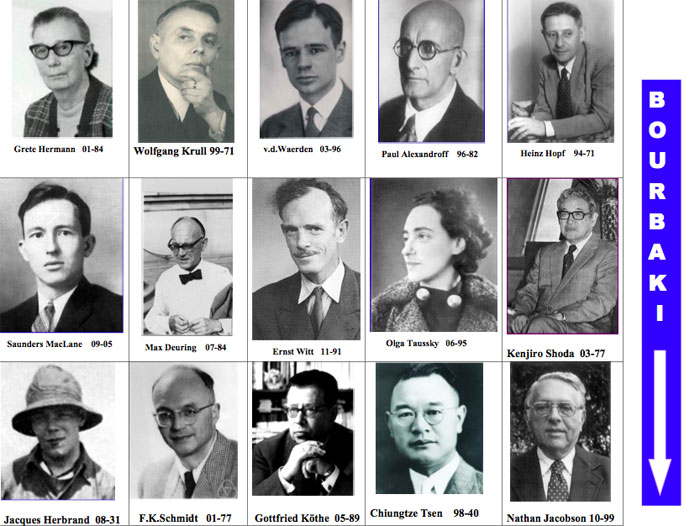Next year I’ll be teaching a master course on the “History of Mathematics” for the first time, so I’m brainstorming a bit on how to approach such a course and I would really appreciate your input.
Rather than giving a chronological historic account of some period, I’d like this course to be practice oriented and focus on questions such as
- what are relevant questions for historians of mathematics to ask?
- how do they go about answering these questions?
- having answers, how do they communicate their finds to the general public?
To make this as concrete as possible I think it is best to concentrate on a specific period which is interesting both from a mathematical as well as an historic perspective. Such as the 1930’s with the decline of the Noether boys (pictures below) and the emergence of the Bourbaki group, illustrating the shift in mathematical influence from Germany to France.

(btw. the picture above is taken from a talk by Peter Roquette on Emmy Noether, available here)
There is plenty of excellent material available online, for students to explore in search for answers to their pet project-questions :
There’s a wealth of riddles left to solve about this period, ranging from the genuine over the anecdotic to the speculative. For example
- Many of the first generation Bourbakis spend some time studying in Germany in the late 20ties early 30ties. To what extend did these experiences influence the creation and working of the Bourbaki group?
- Now really, did Witt discover the Leech lattice or not?
- What if fascism would not have broken up the Noether group, would this have led to a proof of the Riemann hypothesis by the Noether-Bourbakis (Witt, Teichmuller, Chevalley, Weil) in the early 40ties?
I hope students will come up with other interesting questions, do some excellent detective work and report on their results (for example in a blogpost or a YouTube clip).
